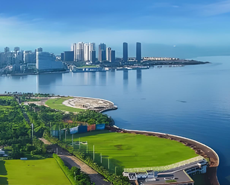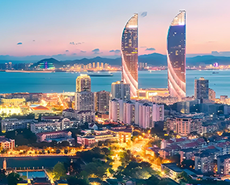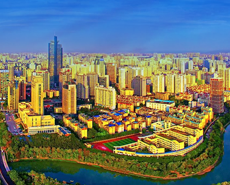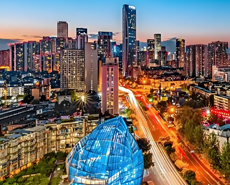
Pursuing diversified development in volatile market
----Interview with Huang Jun
General Manager
Ganzhou Junxing Nonferrous Metal Co., Ltd
General Manager
Ganzhou Junxing Nonferrous Metal Co., Ltd
Located in Ganzhou, cradle of Hakkas, tungsten capital of the world, kingdom of rare earths and origin of geomancy, Ganzhou Junxing Nonferrous Metal Co., Ltd. was incorporated at Chongyi County Market and Quality Supervision Administration Bureau in 2015. The company has been providing excellent products and technical support and solid after-sale service for customers since its establishment and has become a comprehensive enterprise integrating overseas investment, production, sales and after-sale service of minerals.
Asian Metal: Mr. Huang, please give us an introduction of your company and main business.
Mr. Huang: Located in Ganzhou, Jiangxi, tungsten capital of the world and hometown of nonferrous metals, and founded in 2015, Ganzhou Junxing Nonferrous Metal Co., Ltd. focused on beneficiation, processing and trading of tungsten and tin products in the initial stage and has gradually become a comprehensive enterprise integrating overseas development, beneficiation, production, smelting, deep-processing and sales of tin and tantalum-niobium products.


Asian Metal: How about your production and sales in 2019?
Mr. Huang: Our production and sales in the first three quarters of 2019 were relatively stable. During the transition period from old plant to new plant, we still have a way to go to reach the normal production capacity of 2,000 metal tons of tin concentrate and 1,500 tons of tantalum-niobium ore. We sign long-term orders with downstream customers since tin is a bulk commodity and hold back from selling to others now due to significant tin price changes in 2019. Our output of tantalum-niobium increased accordingly with higher processing volume of tin as tantalum-niobium is usually associated in tin ore. Holding regular stocks of tantalum-niobium, we sign long-term orders with downstream customers and do business based on firm orders. We expect a decline of about 30% in overall metal output in the second half of 2019 due to plant relocation and to resume to normal level gradually before the Spring Festival.

















